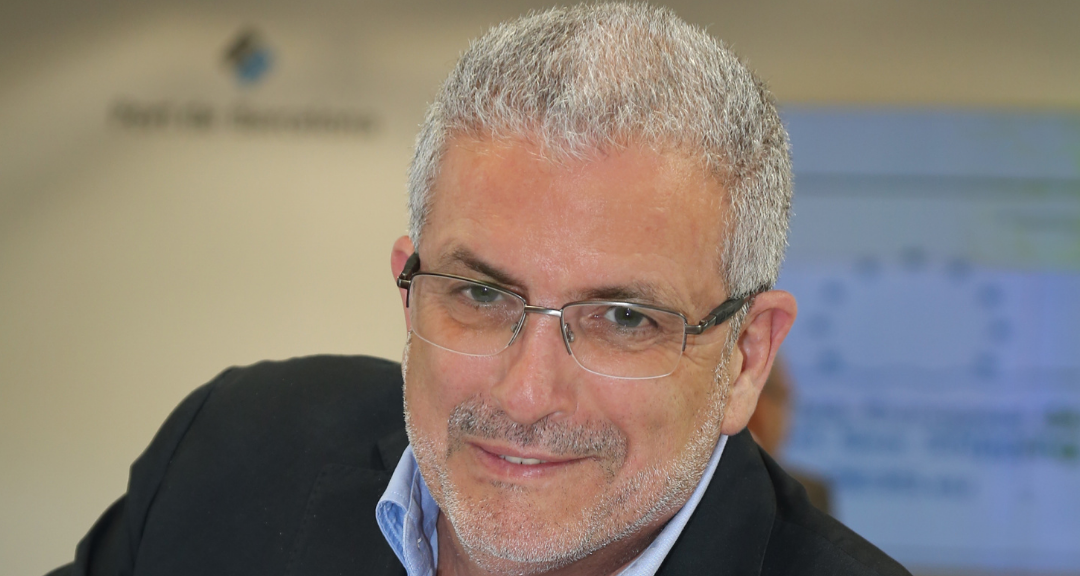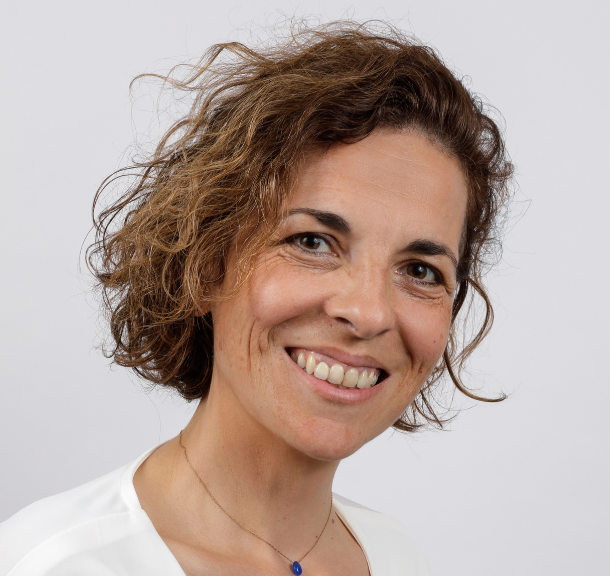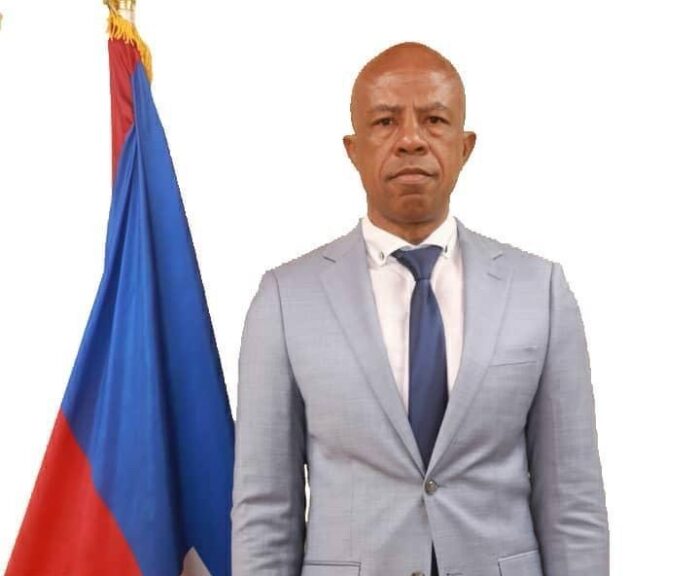Escola Europea is a training centre founded in 2006 by the ports of Barcelona, Roma, and Genoa, and the maritime companies Grimaldi Lines and GNV. This public-private consortium offers training sessions for professionals, secondary and university students. Escola Europea promotes intermodal transport as the basis for sustainable logistics in Mediterranean countries. Its headquarters are in Barcelona (Spain), with an office in Civitavecchia (Italy) as well. Human Capital is one of the goals of AIVP’s Agenda 2030, and we have been delighted to interview Mr. Eduard Rodés, director of the “Escola Europea”.
The origins of Escola Europea
AIVP – On your website we have learned you have three open courses for the moment, on topics as diverse as energy transition in ports or multimodality with rail connections. Port of Barcelona and Port of Genoa, who both are founding members of AIVP, seem to be essential partners.
How was the Escola Europea created? Do you have other partners other than those mentioned above, for example local authorities?
Mr. Eduard Rodés, director of the Escola Europea – The Escola was born from an initiative of the Port of Barcelona which aimed to promote short sea shipping in the Mediterranean, with a particular focus on the lines connecting Spain with Italy. The initial financing for the launch of the Escola project came from the Marco Polo Programme of the European Union’s DG MOVE. It has since then been recognised as a success case in the field of training and the promotion of intermodal transport. Alongside the port authorities, shipping lines also participate in the Escola initiative – something that is crucial to its training activities as they are the service providers. The Grimaldi Group and Grandi Navi Veloci (GNV) from the MSC group are founding members of the Escola alongside the port authorities of Civitavecchia, Genova and Barcelona – which you have correctly mentioned. Apart from these main partners, other private companies and local authorities collaborate in the development of the Escola’s activities that benefit the local communities, as can be seen with our work with for example the city councils of Barcelona and el Prat de Llobregat (both municipalities where the Port of Barcelona is located), and Civitavecchia’s one as well, or the regional entities such as the Barcelona Provincial Council or the government of Catalonia.
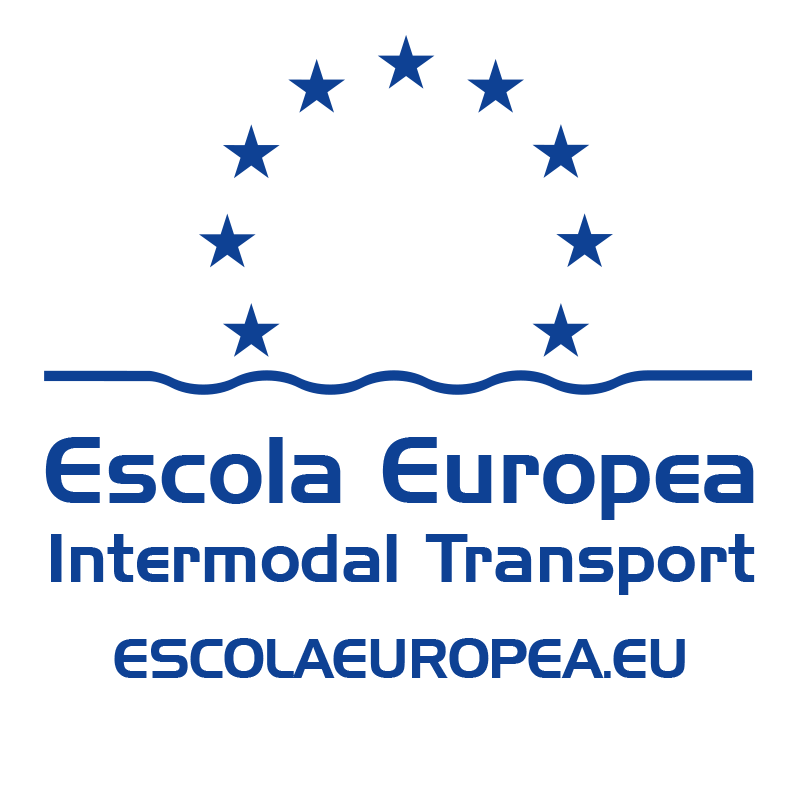
Forma’t al port: a program for the youth
AIVP – Professional orientation must start early: from secondary education, students must be informed about the opportunities offered by the port sector. Sensibilization is essential to make them able to choose an adapted education, so as to access interesting jobs. It seems to us that your programme “Forma’t al port” can constitute such a tool.
How do you raise the interest of young people in port activities, and has it changed since you launched the programme in 2014?
Mr. Eduard Rodés, director of the Escola Europea – The Forma’t al Port programme (translated as “Get trained in the Port”) launched what can now be seen as a new positioning of port communities with regard to their relationship with the training centres in their cities. You point out the importance of reaching young people, and that is the main thing. But in order to reach them, you first have to establish a direct and collaborative relationship with the training centres themselves, and that is now starting to become a reality. The world of education is very complex, and we have made a learning process of its structure and functionalities over the last few years. Forma’t al Port was created to allow students of Vocational Training in Logistics and Transport and International Trade learn about the activities of the commercial port and its involvement with international supply chains. Subsequently, universities that had programmes and degrees linked to these contents and to port operations, and which at the time did not have stable collaboration frameworks in place, as surprising as it may seem, were incorporated into the programme.
Today, our programmes are part of the training curriculum of these degrees, which can no longer be understood without these essential components, both in terms of content and in terms of what it means for a training that is being transformed from instructive to constructive: training is placed in a context, which then becomes a fundamental part of the knowledge associated with this learning. We are currently working on setting up a programme for guidance counsellors for students aged between 16 and 18, an age when young people have to start deciding what they want to study or where they want to work in the coming years. In order for them to know what we do, and with the intention of attracting talent early on, we have started to develop the Descobreix el Port (Discover the Port) programme. In this programme we introduce up a wide range of possible professional profiles, which in cities with a port often include activities in the tourism and nautical sectors.
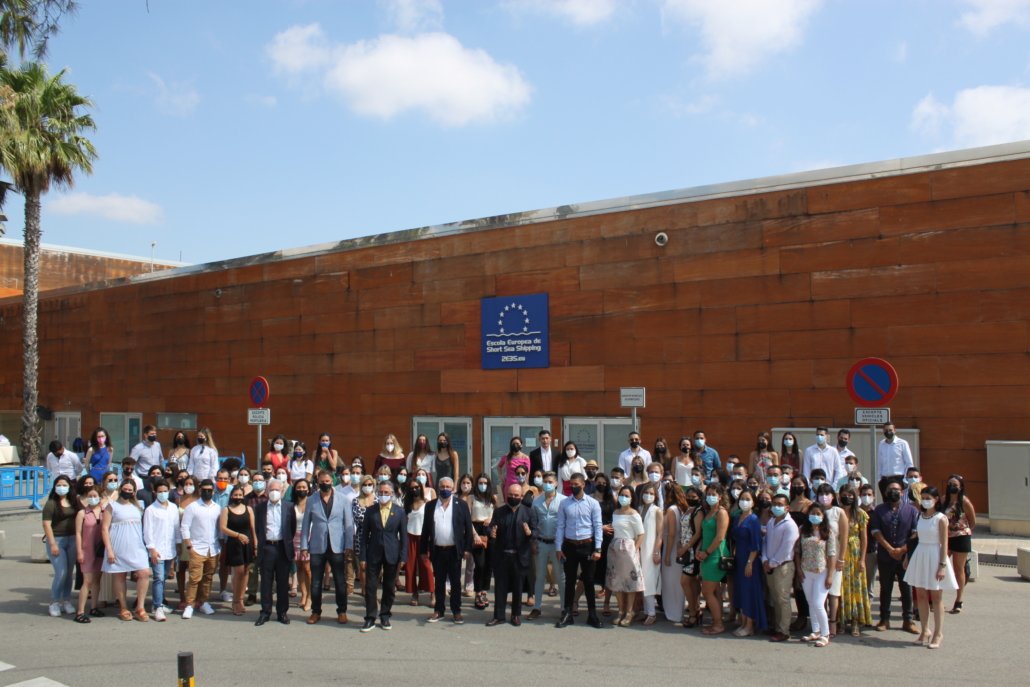
YEP MED: vocational training in the port
AIVP – Contracting 420 internships in 7 different Mediterranean countries: this is the end goal you have for the YEP MED, an EU project you are leading. We would also like to learn more about this project’s vocational training section.
How do you prepare young students to join the port sector? Which are the most essential skills to satisfy a port recruiter’s requirements?
Mr. Eduard Rodés, director of the Escola Europea – The YEP MED project has the participation of 8 port communities from 7 different countries. In order to progress the project, in particular facing a new and unfamiliar context such as the pandemic caused by the COVID-19 virus, it was necessary for us to rethink the contents and the way we would carry them forward, without changing the essence of the initial project approved by the European Commission in the pre-coronavirus reality. The contents thus that were developed have focused on the management of sustainable import and export operations in international trade from the perspective of a freight forwarding company. With this approach, it was necessary to understand the door-to-door operations and the entire logistics chain that must be serviced, its external costs, passing through the ports and their operators: terminals, consignees, port authorities, customs, etc. The result has been surprising for everyone, as it became possible for us to reproduce operations practically identical to those of the real world, but in a virtual business environment. What started out as a problem – with the implementation of virtual learning and the closing of all borders – has become an opportunity and the start of a new generation of simulation-based educational tools.
A second unifying element has been English, which became the “lingua franca” of the training and is now essential in our sector. This has allowed the students to collaborate with students from other centres in other countries during the courses when working out their operations. This has been fascinating for both students and teachers. It is something new that normally would have taken many years to get off the ground.
The third element has been the immersion in the digitalisation processes of companies in the sector, which have been drastically accelerated by the pandemic. Sustainable international trade, English, digitalisation and participation in international teams have proven to be a winning approach. The whole process is completed with internships for students in companies and dual training when possible. Companies have begun to understand that they are also part of the solution and that they must get involved and collaborate.
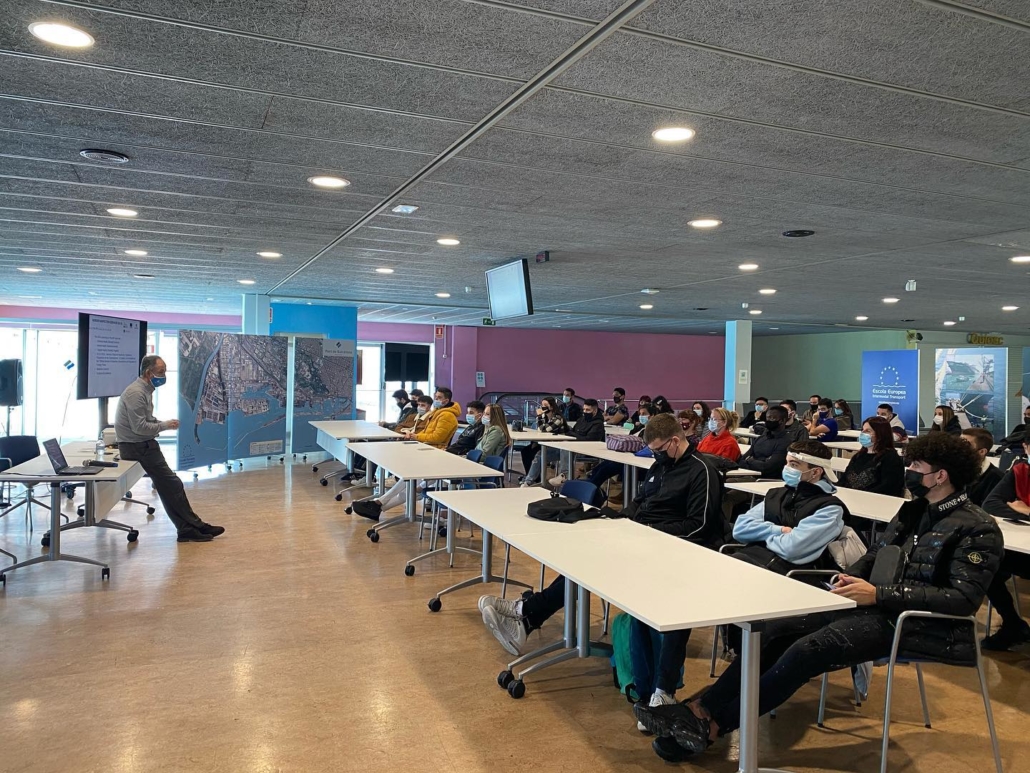
YEP MED: helping unemployed people
AIVP – In Mediterranean countries especially, youth unemployment is a difficult issue to deal with, as in Spain where it has reached a 37% high in 2021. On the one hand, port companies often complain that the labour market cannot match their needs; on the other hand, unemployed people complain that port jobs are inaccessible for them. Unemployment seems precisely to be an important section of YEP MED.
How can the port industry contribute to bring jobless people back on tracks?
Mr. Eduard Rodés, director of the Escola Europea – For many years now in the labour market there has been a higher demand for people trained in port industry profiles than what was available. And this demand of trained people should increase immediately. Improving the situation in the Mediterranean means increasing exports from all countries, both along the south-north routes as well as the south-south ones. This means that more companies, especially SMEs, must internationalise themselves. This will also be possible thanks to e-commerce, which will facilitate this type of trade. And in order to make these operations possible, trained operators will be needed to manage the shipments of these products from origin to destination, and therefore many operators will be needed to make this possible.
We are entering an interesting time when we will enter into intense robotisation processes, but at the same time we will need well-trained professionals to effectively manage these operations. And for an operation to be effective it will have to be environmentally sustainable. If we get it right, there should be no shortage of jobs in our sector in our near future. Essentially, we would want the port industry to become the driver for this change – embracing digitalisation, innovation and sustainability, and therewith modernising our sector whilst providing quality jobs and protecting our Blue Planet.

